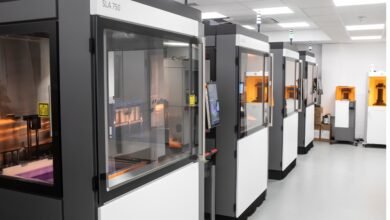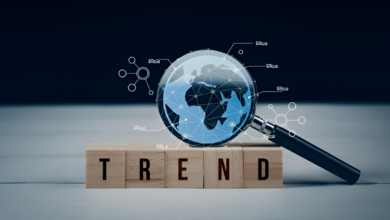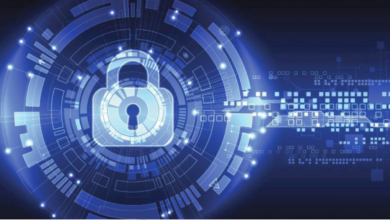10 Minimalist Lifestyle Hacks for a Stress-Free Life
Minimalist lifestyle hacks for a stress-free life. Discover 10 simple tips to declutter, simplify, and focus on what truly matters for peace and joy.

Living a minimalist lifestyle is one of the most effective ways to achieve a stress-free life. By focusing on what truly matters and eliminating unnecessary clutter—both physical and mental—you can create more space for joy, peace, and fulfillment. Minimalism isn’t about deprivation; it’s about intentionality. It’s about making room for the things that add value to your life while letting go of what doesn’t. In this article, we’ll explore ten minimalist lifestyle hacks that can help you simplify your life, reduce stress, and cultivate a sense of calm and clarity.
In today’s fast-paced world, stress has become an almost inevitable part of life. From overwhelming workloads to the constant bombardment of information, it’s easy to feel like you’re drowning in chaos. Minimalism offers a way out. By adopting a minimalist mindset, you can streamline your life, prioritize your well-being, and focus on the things that truly matter. Whether it’s decluttering your home, simplifying your schedule, or reevaluating your relationships, these minimalist lifestyle hacks will guide you toward a more peaceful and stress-free existence.
Declutter Your Physical Space
Decluttering your physical space is one of the most transformative steps you can take toward a minimalist lifestyle. A cluttered environment often leads to a cluttered mind, making it difficult to focus, relax, or feel at ease in your own home. Start by tackling one area at a time—whether it’s a drawer, a closet, or an entire room. As you go through your belongings, ask yourself two simple questions: Does this item serve a purpose? Does it bring me joy? If the answer to both is no, it’s time to let it go. Donate, sell, or recycle items that no longer add value to your life. By removing the excess, you’ll create a cleaner, more organized space that fosters calm and clarity.
The benefits of decluttering extend far beyond aesthetics. A tidy environment can significantly reduce stress and improve your overall well-being. When your surroundings are organized, you’ll spend less time searching for misplaced items and more time enjoying the things that matter most. Decluttering also provides a sense of accomplishment and control, which can be incredibly empowering. As you let go of physical clutter, you’ll likely find that your mental clutter begins to dissipate as well. A decluttered space is not just a reflection of a minimalist lifestyle—it’s a foundation for a more peaceful and intentional way of living.
Simplify Your Wardrobe
Simplifying your wardrobe is a powerful way to embrace minimalism and reduce daily decision fatigue. A closet overflowing with clothes you rarely wear can feel overwhelming and make it harder to choose outfits each day. Start by evaluating your minimalist current wardrobe and identifying the pieces you truly love and wear regularly. Donate or sell items that no longer fit, are out of style, or simply don’t bring you joy. The goal is to create a capsule wardrobe—a curated collection of versatile, high-quality pieces that can be mixed and matched effortlessly. Stick to neutral colors and timeless styles that suit your lifestyle, ensuring that every item in your closet serves a purpose and makes you feel confident. A simplified wardrobe not only saves you time and energy but also helps you develop a more intentional approach to fashion. With fewer choices, you’ll spend less time agonizing over what to wear and more time focusing on the things that truly matter.
Prioritize Quality Over Quantity
In a world that often encourages excess, prioritizing quality over quantity is a cornerstone of the minimalist lifestyle. This principle applies not only to material possessions but also to relationships, experiences, and even the way you spend your time. When it comes to physical items, investing in well-made, durable products may require a higher upfront cost, but it pays off in the long run. High-quality items last longer, perform better, and often bring more satisfaction than their cheaper, disposable counterparts. By choosing quality over quantity, you reduce the need for constant replacements, save money, and minimize waste, all while surrounding yourself with items that truly add value to your life. This mindset extends beyond material goods. In relationships, for example, focusing on a few meaningful connections minimalist rather than spreading yourself thin across numerous superficial ones can lead to deeper, more fulfilling interactions. Similarly, prioritizing quality experiences—such as spending time on hobbies you love or traveling to places that inspire you—over a packed schedule of mediocre activities can bring greater joy and fulfillment.
Streamline Your Digital Life
In today’s hyper-connected world, digital clutter can be just as overwhelming as physical clutter. From overflowing email inboxes to countless apps and endless notifications, our digital lives often feel chaotic and draining. Streamlining your digital space is essential for reducing stress and reclaiming your focus. Start by decluttering your devices—delete unused apps, organize files into folders, and unsubscribe from email lists that no longer serve you. Turn off unnecessary notifications to minimize distractions and create a more peaceful digital environment. By simplifying your digital tools and platforms, you’ll free up mental space and make it easier to concentrate on what truly matters. Beyond decluttering, establishing healthy boundaries with technology is key to maintaining a streamlined digital life. Designate specific times for checking emails or social media, and create tech-free zones in your home to encourage offline connection and relaxation. Consider using tools like website blockers or focus apps to help you stay on track during work or personal time
Practice Mindful Consumption
Mindful consumption is a cornerstone of minimalism. Before making a purchase, ask yourself whether you truly need the item and whether it aligns with your values. Avoid impulse buying and focus on acquiring only what adds value to your life. By being intentional with your spending, you’ll not only save money but also reduce the stress that comes with minimalist financial clutter. Mindful consumption also extends to other areas of life, such as the media you consume and the activities you engage in.
Create a Simplified Schedule
A packed schedule is a major source of stress for many people. Minimalism isn’t just about physical possessions—it’s also about simplifying your time. Evaluate your commitments and eliminate activities that don’t align with your priorities. Learn to say no to things that drain your energy and focus on what truly matters. By creating a simplified schedule, you’ll have more time for rest, relaxation, and the things that bring you joy.
Embrace Single-Tasking
In a world that glorifies multitasking, minimalism encourages the opposite: single-tasking. Focus on one task at a time and give it your full attention. This approach not only improves productivity but also reduces stress and enhances the quality of your work. By slowing down and being present in the moment, you’ll find that life becomes more manageable and enjoyable.
Cultivate Gratitude
Gratitude is a powerful tool for reducing stress and fostering a minimalist mindset. Take time each day to reflect on the things you’re grateful for, whether it’s your health, relationships, or simple pleasures like a warm cup of tea. By focusing on what you have rather than what you lack, you’ll develop a greater sense of contentment and reduce the desire for more. Gratitude helps you appreciate the present moment and find joy in the simplicity of life.
Let Go of Perfectionism
Perfectionism is a major source of stress and can prevent you from living a minimalist lifestyle. Let go of the need to have everything perfect and embrace imperfection instead. Understand that it’s okay to make mistakes and that life doesn’t have to be flawless to be beautiful. By releasing the pressure to be perfect, you’ll feel lighter and more at ease.
Focus on Experiences Over Possessions
Finally, shift your focus from material possessions to meaningful experiences. Instead of spending money on things, invest in experiences that bring you joy and create lasting memories. Whether it’s traveling, spending time with loved ones, or pursuing a hobby, experiences enrich your life in ways that possessions never can. By prioritizing experiences, you’ll cultivate a sense of fulfillment and reduce the stress that comes with accumulating stuff.
Read More: How 5G Is Transforming Connectivity in the USA & UK
Conclusion
Adopting a minimalist lifestyle is a powerful way to reduce stress and create a more peaceful, fulfilling life. By decluttering your physical and digital spaces, simplifying your schedule, and focusing on what truly matters, you can free yourself from the chaos of modern life. Minimalism isn’t about living with less for the sake of it—it’s about making room for more joy, more peace, and more of what brings you happiness.
As you embark on your minimalist journey, remember that it’s a process, not a destination. Take small, intentional steps toward simplifying your life, and don’t be afraid to let go of what no longer serves you. By embracing minimalism, you’ll discover that a stress-free life isn’t just possible—it’s within your reach.
FAQs
What is a minimalist lifestyle?
A minimalist lifestyle focuses on living with intention by prioritizing what adds value and eliminating unnecessary clutter, whether physical, mental, or emotional.
How does minimalism reduce stress?
Minimalism reduces stress by simplifying your environment, schedule, and priorities, allowing you to focus on what truly matters and eliminating distractions.
Can I be a minimalist without getting rid of everything?
Yes, minimalism isn’t about deprivation—it’s about keeping what adds value to your life and letting go of what doesn’t.
How do I start living a minimalist lifestyle?
Start by decluttering your physical space, simplifying your schedule, and practicing mindful consumption. Take small, intentional steps toward minimalism.
Is minimalism only about physical possessions?
No, minimalism extends to all areas of life, including your digital space, relationships, and time management. It’s about simplifying every aspect of your life.








3 Comments